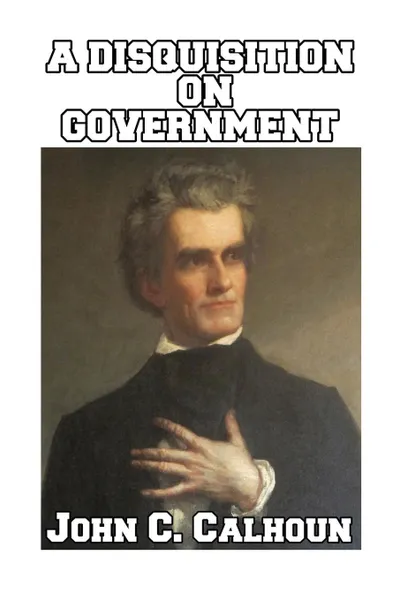A Disquisition on Government 12+
Автор: John C. Calhoun
2019
78 страниц
Категория: Литература на иностранных языках
ISBN: 9780368868528
Язык: Английский
📓 John Caldwell Calhoun (1782-1850) was America's leading political theorist of his day who served as the seventh elected Vice President of the United States (1825-1832), the sixteenth United States Secretary of State (1844-1845), the tenth United States Secretary of War (1817-1825), as a senator from South Carolina (1845-1850), as a Member of the House of Representatives from South Carolina's 6th district (1811-1817), and as a Member of the South Carolina House of Representatives from Abbeville District (1808-1809).
He was the foremost promoter of states' rights, limited government, nullification (the right of states to overrule federal laws) and free trade. He argued that slavery was a "positive good" in that it uplifted and protected the black population. He was also an ardent proponent of minority rights, and by this he meant the white population in the Southern States.
Calhoun died eleven years before the start of the American Civil War, but he was an inspiration to the secessionists of 1860-61 and was featured on an (unissued) Confederate States of America (CSA) postage stamp and on a CSA $100 bill.
The Disquisition on Government comprises Calhoun's definitive and fully elaborated ideas on government. It systematically presents his arguments that
(1) a numerical majority in any government will typically impose a despotism over a minority unless some way is devised to secure the assent of all classes, sections, and interests and
(2) that innate human depravity would debase government in a democracy.
To protect minority rights against majority rule, he called for a "concurrent majority" whereby the minority could sometimes block offensive proposals that a State felt infringed on their sovereign power.
He was the foremost promoter of states' rights, limited government, nullification (the right of states to overrule federal laws) and free trade. He argued that slavery was a "positive good" in that it uplifted and protected the black population. He was also an ardent proponent of minority rights, and by this he meant the white population in the Southern States.
Calhoun died eleven years before the start of the American Civil War, but he was an inspiration to the secessionists of 1860-61 and was featured on an (unissued) Confederate States of America (CSA) postage stamp and on a CSA $100 bill.
The Disquisition on Government comprises Calhoun's definitive and fully elaborated ideas on government. It systematically presents his arguments that
(1) a numerical majority in any government will typically impose a despotism over a minority unless some way is devised to secure the assent of all classes, sections, and interests and
(2) that innate human depravity would debase government in a democracy.
To protect minority rights against majority rule, he called for a "concurrent majority" whereby the minority could sometimes block offensive proposals that a State felt infringed on their sovereign power.
Мнения
